It is often said that there is a right place and right time for everything. The well-known author Kai Bird probably understands this truth more than anyone else. His book American Prometheus: The Triumph and Tragedy of J. Robert Oppenheimer, which he co-authored with Martin Sherwin was published in 2005 but it was only after eighteen years that the world sat up and took notice of this Pulitzer Prize winner.
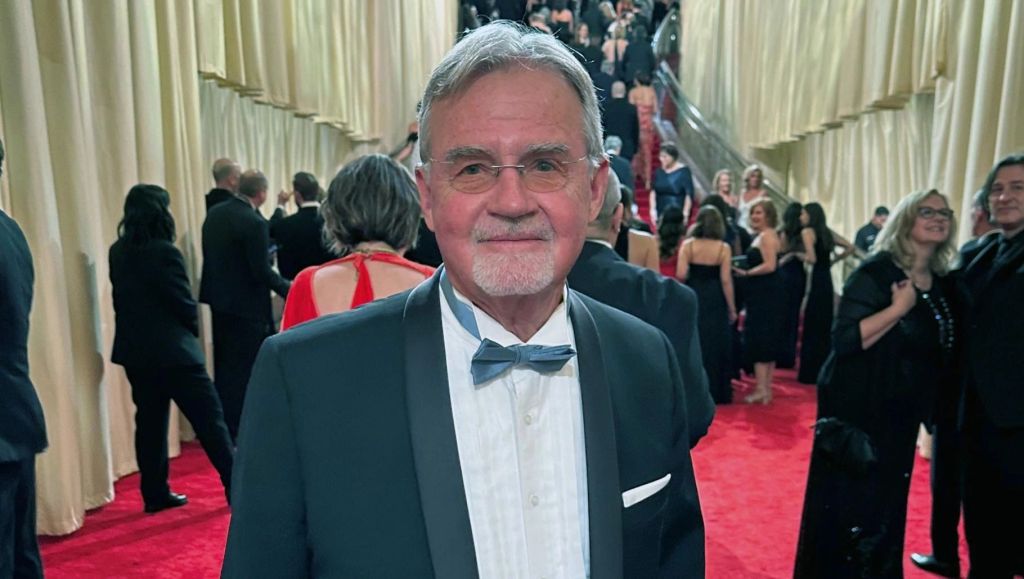
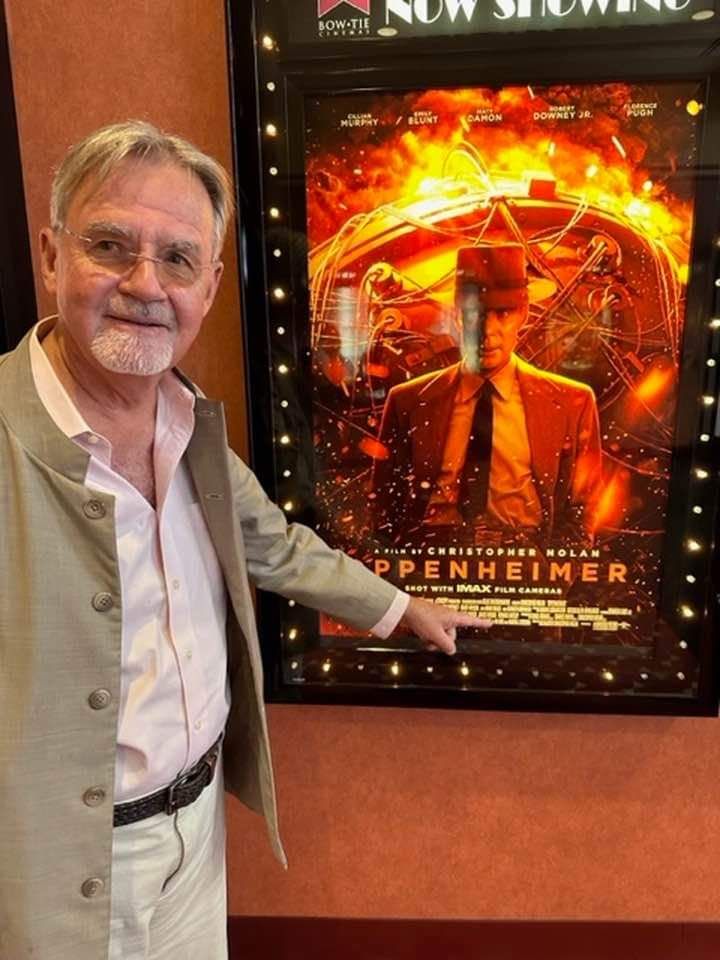
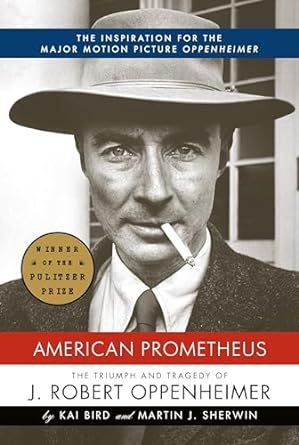
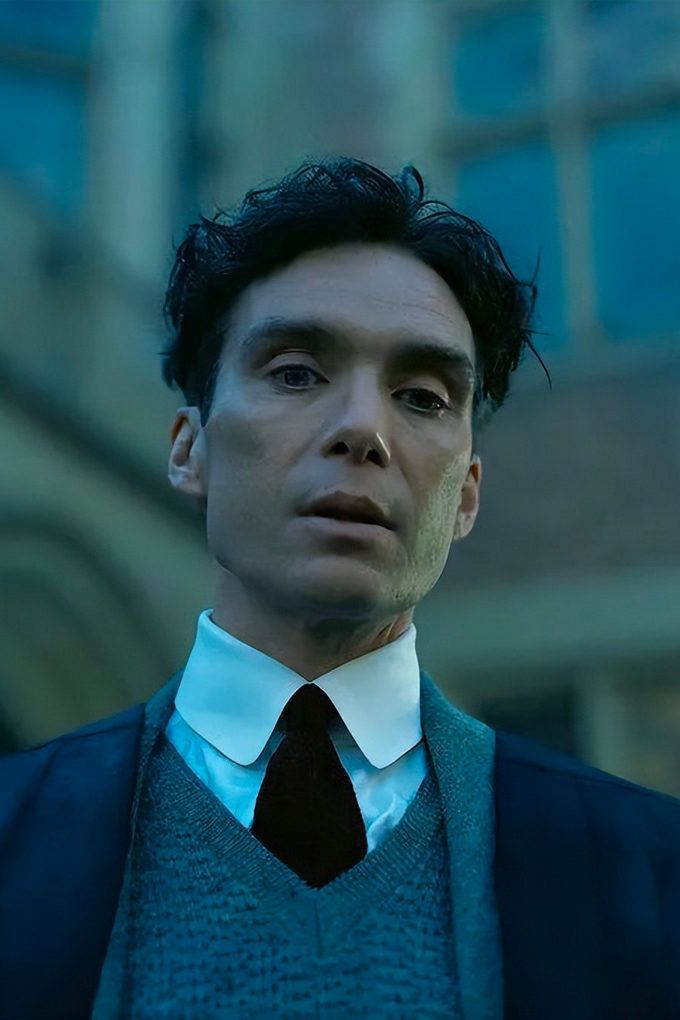
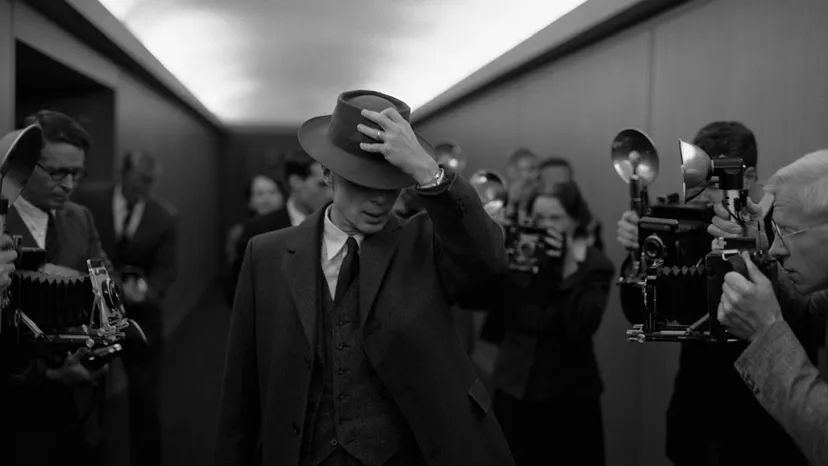
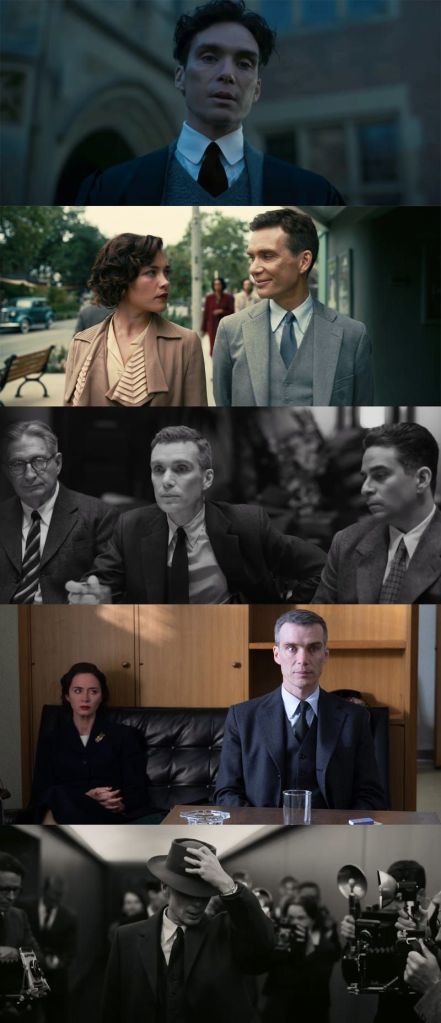
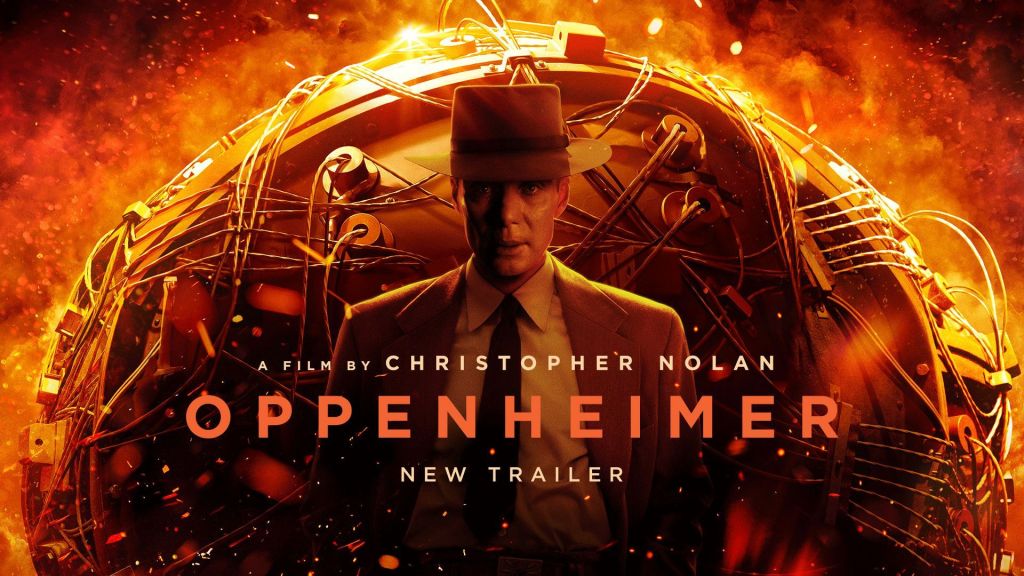
You are up next,’ said the PR person who was managing the interviews. I stood up from my seat and made my way to the front area of the press lounge of the Jaipur Literature Festival 2024. I was about to interview Kai Bird, the legendary much-talked about co-author of ‘American Prometheus: The Triumph and Tragedy of J. Robert Oppenheimer., a book which did not only received the Pulitzer Prize in 2006 but also has been the subject of the movie Oppenheimer which has been coveted as one of the best films of 2023 and has won five Golden Globe Awards, seven Academy Awards amongst others. I saw Kai Bird talking to another journalist. ‘He looks tired’, I commented. The PR lady said, ‘He has done about twenty interviews!’
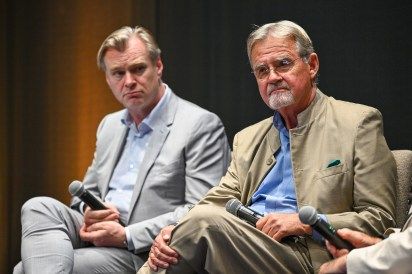
‘Twenty interviews! Isn’t he tired? Would he able to give more interviews?’ I asked. ‘Of course! Don’t worry, he is one of the most patient people I have ever known.’
Soon, the ongoing interview got over and it was my turn.
I greeted Kai and asked him if he would like a breather before we commenced our interview. ‘No problem. Please continue,’ he said with a smile which never left his face for the entire duration of the interview.
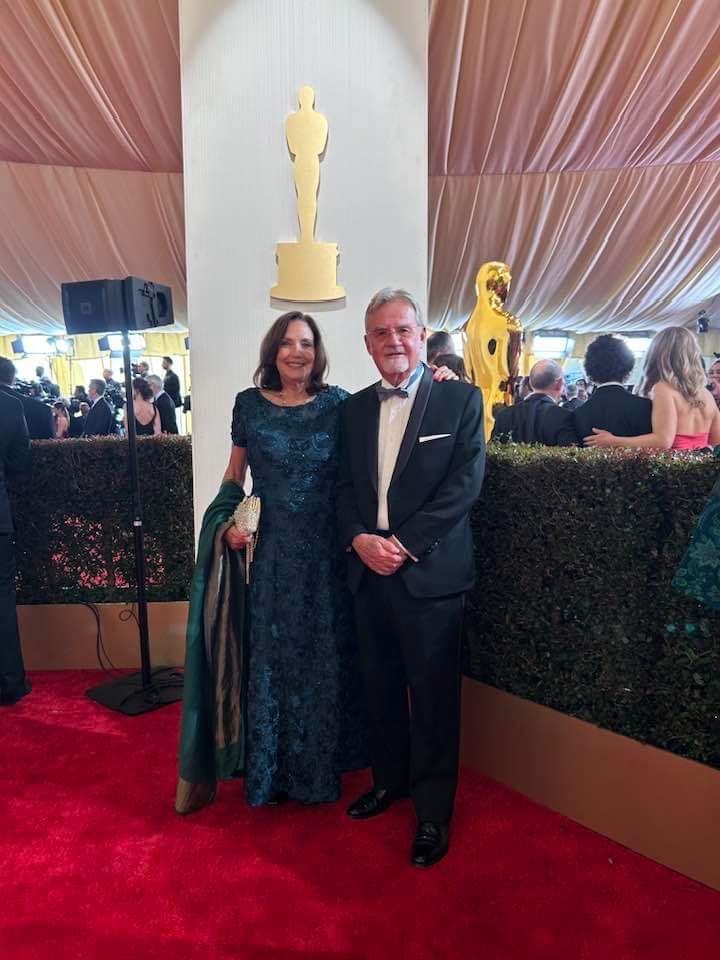
Sometimes, he laughed when he found the question or the answer funny. His simplicity was endearing. It was hard to believe that this was the man who along with Martin Sherwin had written such a historical novel which was the very reason for the movie.

He was the man that the Christopher Nolan recently thanked publicly in front of millions as he accepted the Oscar for the best director for Oppenheimer and said, Kai Bird and Martin Sherwin, thank you for the 25 years you put into the book that this film is based on. I thank you Kai for trusting me with your work and Marty, unfortunately he left us before I was able to show him the final script, but Kai your constant reassurances once you saw the film that he would have approved meant the world to me.’ He even acknowledged that he had picked up whole packages of the dialogue straight from the book and said. ‘we are standing on the shoulders of giants.’
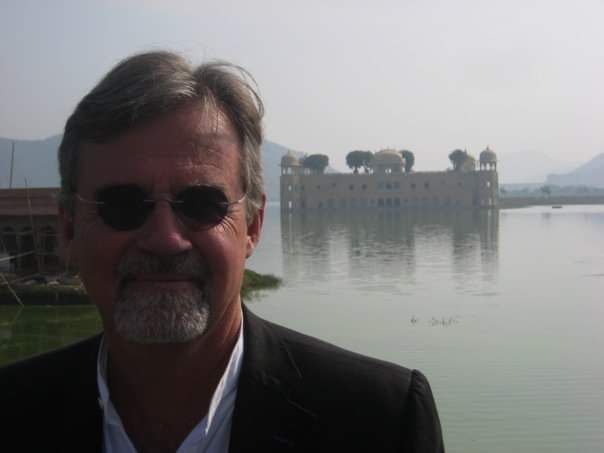
Some excerpts from the conversation that followed.
Your book has received so much of success with all the awards and accolades. How does success change you?
Kai Bird smiled. He said, ‘You know this book came out eighteen years ago. It was well reviewed and sold modestly but it obviously never got on to the best seller list. It was only in 2021 that Christopher Nolan, the director of Oppenheimer read the book and decided to turn it into a movie. And now suddenly after eighteen years, it is getting all this renewed attention, much larger readership and many more people are buying the book. It seems a little surreal all of a sudden.
How did you react to all this attention?
Well, its lovely. But I actually think that it is better for me as a writer that this happened this year (2024) rather than 2005 otherwise all this success would have diverted me. Since 2005, I have written a memoir, a biography of a CIA officer, presidential biography of Jimmy Carter. I am afraid I would have been diverted from all this work.
So now has the win diverted you?
Yes (laughs), I should have been working in New York on my new biography but instead I am in Jaipur doing interviews.
But do wins lead to a lot of expectations? Do you think about how your next book would be received after such a stupendous response?
No, wins don’t affect me in that way. I write my books for myself, out of my own curiosity, my motivation, to figure out what really happened.

As a biographer who is writing about other people, do you get into the heads of your subjects to understand them?
No, I don’t think biographers need to get into any one’s head or know what they were thinking. We have letters and evidence from letters, from the stories Oppenheimer told his friends, narrated or written down. You know biography is like a good novel but written down with footnotes (laughs). And those are my choices about what looks interesting in the other person’s life. You cannot write everything about any person.
Having studied in different parts of the world including India, how has it shaped you?
You know I went to high school in Kodai Kanal in Tamil Nadu, India since my father was a US foreign service officer. I went to school in Egypt, Beirut. So, I have a slightly odd perspective on the world, very unamerican (laughs).
What is your perspective?
Oh, I see the world as a very large place and a very small place at the same time. I have never hesitated to travel and I don’t have any fear of travelling. I see the world is a complicated and its bigger than just America (laughs)
But living outside of America and studying in different schools in different parts of the world, did children ever single you out for your different appearance or different manner?
Well, like I said my whole childhood was spent living outside of America. So, when I went back to America to go to college in 1969, it was a very strange experience. I felt out of the place, I felt like a stranger. I was eighteen years old but I didn’t know how to drive a car. Most eighteen-year-olds in America have been driving for two years by then. I didn’t know how to use a telephone or payphone. Vietnam war was still waging. First thing that I had to do on reaching America was to register for the draft (army). I was opposed to the Vietnam war and actually a year later I got arrested for blocking the doors of the draft induction centre in Minneapolis in protest of the war. I spent a day in prison and had a trial too. So, it was a very strange time coming back to America, amidst all this. I didn’t understand America.
If I were to ask you which place do you have the fondest memories of in your childhood, what would be and where would it be?
I have great memories of my school years in Kodaikanal (Kodaikanal International School, Tamil Nadu) . It is a very surreal, beautiful place amidst the mountains, at a height of about 7000 feet. I was a teenager studying and since I was there, I took this opportunity to travel all over India. When I was eighteen, I flew into Katmandu. I played tourist for a week. Even after that I went to Katmandu many times. In fact, I lived there from 2007 to 2011, because my wife had a job with the World Bank and she was posted there.
Any memories of your childhood that you particularly remember?
Well, I wrote my childhood memoir called Crossing Mandelbaum Gate: Coming of Age Between the Arabs and Israelis, 1956–1978 It is all about my childhood in the middle east during the conflict between Arab and Israel. I lived in the Middle East during the ‘56 war, ‘67 war. In 1970 my girlfriend was hijacked by the Palestinian Guerillas. I lived during the’ 73 war. The memoir talks about my childhood and also conveys a lot of history.
I remember my dad told me that when I was five years old, my parents and me were at a very posh, boutique hotel in Jerusalem. On the next table, an Arab woman announced that she would give a million dollars to anyone who could solve this Arab Israeli conflict. So, I reached over to my father’s coat cuff and said, ‘Daddy, we need to win that prize!’ So I think I have been trying to win that prize ever since (laughs).
So, what do you feel about the current wars?
It’s a tragedy but it is stupidity! Its like we human beings are so crazy and these wars are costly in terms of the blood and also the treasure. Its insanity.
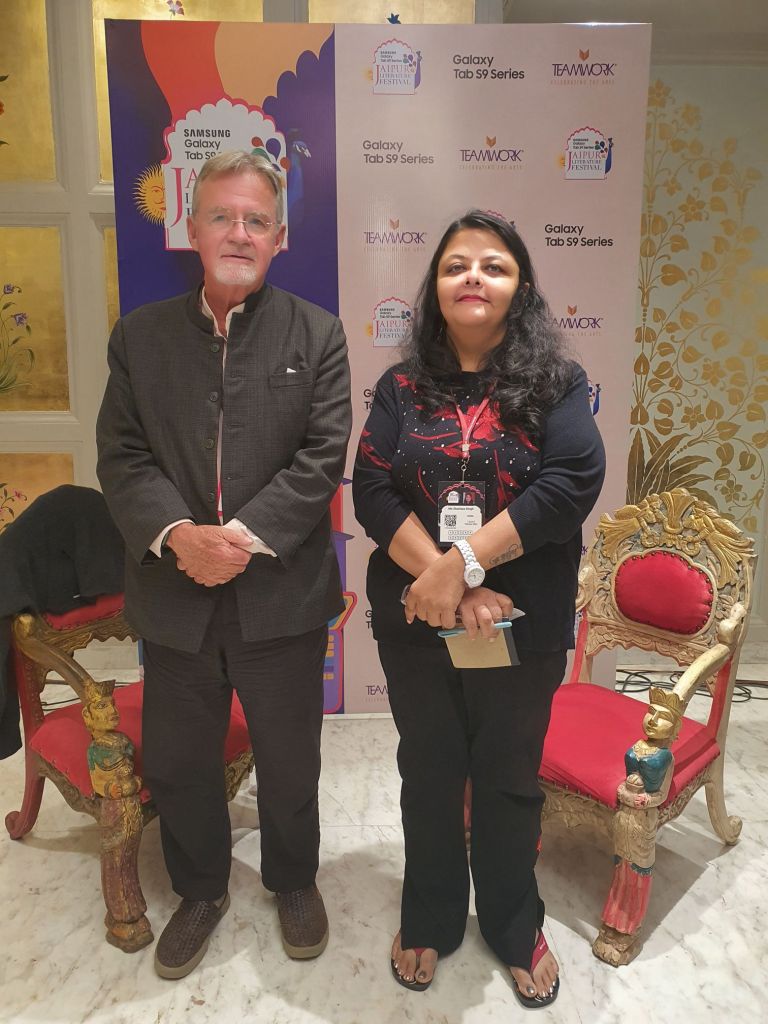
Have you ever felt that you have imbibed the personality of Oppenheimer in any way?
No! he is a very different personality. I never picked up a pipe or started smoking cigarettes or tried to learn quantum physics.
So, how do you feel about the movie Oppenheimer’s win? How do you think will this win impact the upcoming movies?
I am thrilled that Christopher Nolan’s “Oppenheimer” has won seven Oscars—and I hope this encourages Hollywood and Bollywood to tackle big, serious historical stories and biographies. Obviously, it proves that there is an appetite out there for consequential historical narratives.
Speaking of Bollywood, what is your favourite Indian movie?
Well, one of my favourites was “Gandhi”—a major bio-pic about a serious subject.
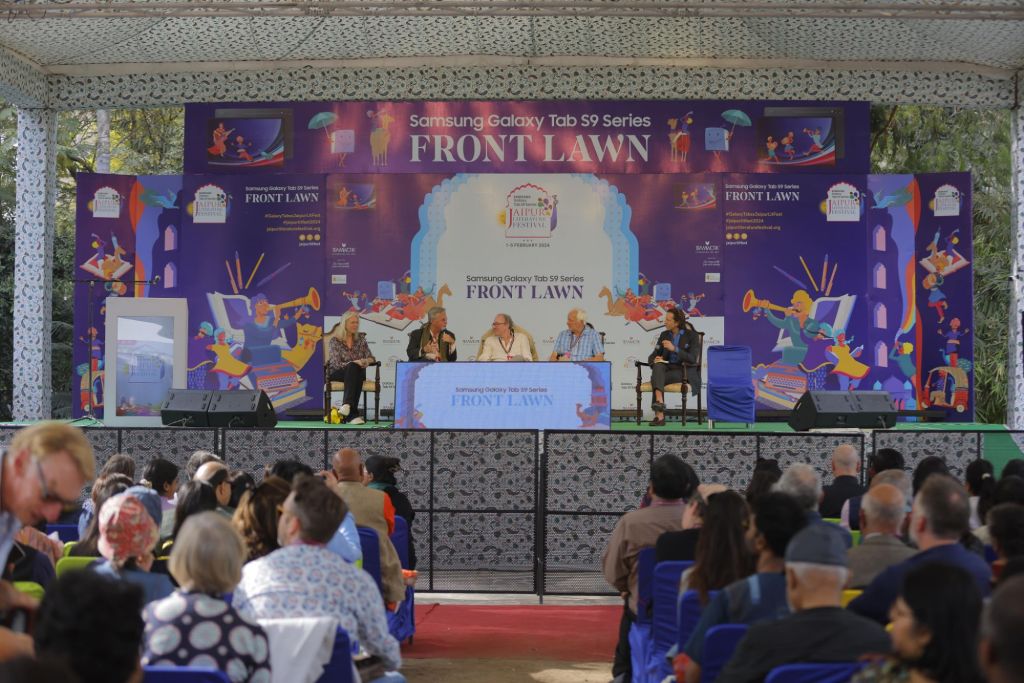
What are you working on next?
My next book is a biography of Roy Cohn, the lawyer who advised Trump from 1973 until 1986 when he died of AIDS.
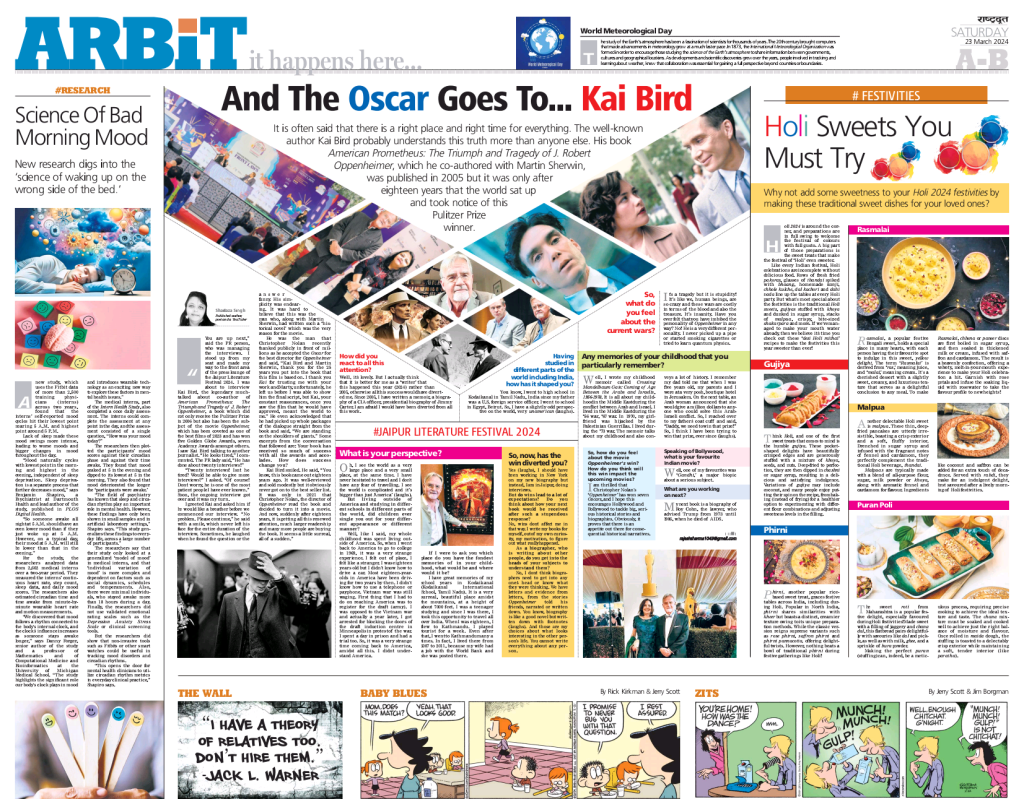
Impressive and informative…
LikeLike